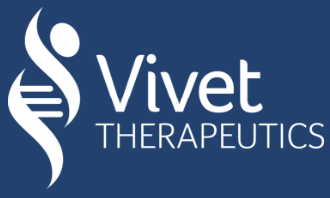[vc_row css=”.vc_custom_1647958761414{margin-top: 0px !important;padding-top: 0px !important;}”][vc_column width=”1/2″][ts-heading h2=”Scientific Approach” h2_font_container=”” use_custom_fonts_h2=”true”][/ts-heading][vc_column_text]Vivet Therapeutics is committed to developing an innovative liver-directed gene therapy platform for the treatment of rare and severe inherited metabolic disorder
Vivet Therapeutics is a gene therapy company dedicated to the development of gene therapy treatments for inherited liver disorders with high unmet medical need. The company’s development strategy is to target the liver with novel adeno associated virus to introduce therapeutic genes to hepatocytes.[/vc_column_text][vc_single_image image=”8000″ img_size=”full”][/vc_column][vc_column width=”1/2″][vc_single_image image=”8000″ img_size=”full”][vc_column_text]In close collaboration with FIMA at the Center for Applied Medical Research (CIMA) in Pamplona, Spain, Vivet’s focus is on developing innovative gene therapy technologies and treatments for Wilson disease, Progressive Familiar Intrahepatic Cholestasis (PFIC), Cirtullinemia Type 1 (CTLN1) and other indications. Vivet’s platform leverages new AAV-serotypes, advanced GMP manufacturing processes, disease models and innovative technologies to address current challenges in AAV-based gene therapy.
Its lead program on Wilson disease, VTX-801, has already generated robust preclinical data in in vivo disease models with an active therapeutic ATP7B protein demonstrating high efficacy and safety of the treatment.
Targeting life threatening and severely debilitating liver metabolic disorders with high unmet needs in pediatric and adult patients
Approximately 15,000 children are hospitalized every year with pediatric liver disease or disorders. For many liver disorders, in particular genetic inherited diseases, liver transplantation is the only cure available today. Based on the high cost and potential life-long immunosuppressive therapy, morbidity and mortality associated both with the disease itself and the transplantation procedure, there is a high medical need for a safe, efficacious and cost effective treatment regimen for these patients.d type ATP7B gene in disease models.[/vc_column_text][/vc_column][/vc_row][vc_row css=”.vc_custom_1647959595250{margin-top: 0px !important;padding-top: 0px !important;}”][vc_column][vc_column_text css=”.vc_custom_1647959457699{margin-top: 0px !important;margin-bottom: 0px !important;padding-top: 0px !important;padding-bottom: 0px !important;}”]Since responsible genes have already been identified and significant knowledge of the pathophysiology obtained for many of these disorders, gene therapy represents an attractive alternative treatment option. Additionally, the highly-vascularized nature of the hepatic tissue and the tolerogenic properties of this organ support the concept of targeting the liver for systemic delivery of expressed therapeutic proteins into the bloodstream.
Vivet is therefore in a unique position to leverage its proprietary AAV gene therapy platform based on a liver tropic AAV-serotype to treat inherited liver diseases with high efficacy and safety.
The engineering of a high-activity ATP7B truncated transgene paves the way towards restoring a copper homeostasis in Wilson disease
Wilson disease (WD) is an autosomal recessive disorder of copper metabolism affecting 1:30,000 individuals. Liver and neurological injury may be prevented or treated by lifelong medical therapy with D-penicillamine or trientine, or zinc salts that inhibit copper absorption. Reduced copper excretion causes an excessive deposition of the copper in many organs such as the liver, central nervous system (CNS), cornea, kidney, joints, and cardiac muscle where the physiological functions of the affected organs are impaired. The underlying molecular mechanisms for WD have been extensively studied.
A defect in P-type adenosine triphosphatase (ATP7B), the gene encoding the copper transporting P-type ATPase, is responsible for hepatic copper accumulation. Deposited copper in the liver produces toxic effects via modulating several molecular pathways.
VTX-801 is the most advanced program, consisting of a truncated version of the ATP7B gene showing high expression in hepatocytes and significant increased efficacy compared to the wild type ATP7B gene in disease models.[/vc_column_text][/vc_column][/vc_row]

